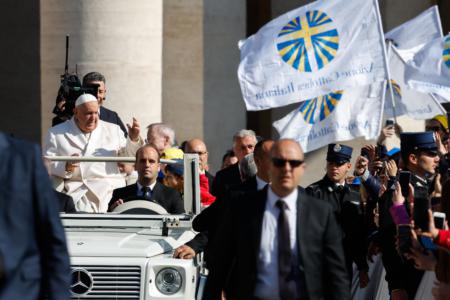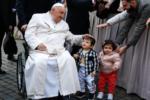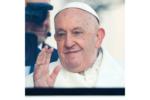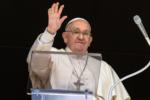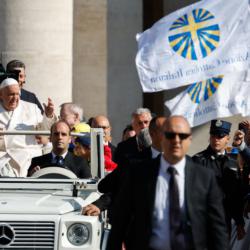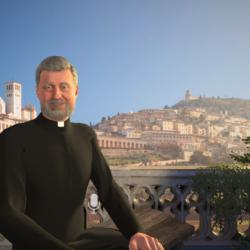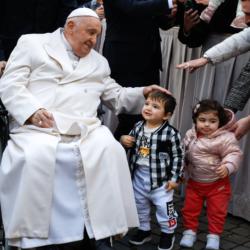The Year of Faith, the new evangelization, and me
The Church opened a new Year of Faith on Oct. 11, the fiftieth anniversary of the beginning of Vatican II in 1962, and the twentieth anniversary of the release of the Catechism of the Catholic Church in 1992. All three of these Church events, of course, were (are) intended to present the Catholic faith in a way that speaks to the people of today, challenging us to live it as our path to union with our Father God in heaven, to love it, and to spread it.
The challenge couldn't come at a more opportune time. The Pew Survey on Religion has just revealed that the number of Americans who don't identify with any religious denomination has increased 5 percent in the past 5 years, from 15 to 20 percent. While Roman Catholicism is the single largest denomination in the country, the number of ex-Catholics would be the second largest denomination, as one in ten Americans are fallen-away Catholics. There seems to be a dramatic move away from organized religion, to secularism, atheism, and new-age "spirituality" divorced from religion.
Indeed, there was a Synod of Bishops meeting in Rome on the subject of the new evangelization between Oct. 7 and 28. The New Evangelization is the Church's name for outreach, starting with its disaffected members. One of the problems is people who are merely cultural Catholics, who were baptized but perhaps not well catechized, and haven't really lived the faith, nor developed a personal relationship with our Lord. Sin is obviously part of the problem.
Cardinal Timothy Dolan of New York gave an interesting analysis on the second day of the Synod. He quoted the Venerable Archbishop Fulton J. Sheen, our "great American evangelist," as saying, "The first word of Jesus in the Gospel was 'come'; the last word of Jesus was 'go.'" Cardinal Dolan continued: "The New Evangelization reminds us that the very agents of evangelization must first be evangelized themselves. Saint Bernard said, 'If you want to be a channel, you must first be a reservoir.' Thus I believe that the primary sacrament of the New Evangelization is the sacrament of penance...The sacrament of reconciliation evangelizes the evangelizers, as it brings us sacramentally into contact with Jesus, who calls us to conversion of heart, and inspires us to answer His invitation to repentance....The answer to the question 'What's wrong with the world?' is not politics, the economy, secularism, pollution, global warming...no. As Chesterton wrote, 'The answer to the question 'What's wrong with the world?' is two words: I am. 'I am!"
As Pope Benedict XVI said in his apostolic letter ''Porta Fidei'' convoking the Year of Faith, "The Year of Faith, from this perspective, is a summons to an authentic and renewed conversion to the Lord, the one Savior of the world. In the mystery of his death and resurrection, God has revealed in its fullness the Love that saves and call us to conversion of life through the forgiveness of sins."
Of course, there are plenty of reasons not to believe, to give up hope, to refuse love. But salvation and sanctification do not come from that. As the Pope wrote, "Only through believing does faith grow and become stronger; there is no other possibility for possessing certitude with regard to one's life apart from self-abandonment, in a continuous crescendo, into the hands of a love that seems to grow constantly because it has its origin in God." As St. Paul wrote the Romans, "Man believes with his heart and so is justified, and he confesses with his lips and so is saved." (Rom 10:10).
On Sunday, Oct. 21, two American women were canonized as saints: Kateri Tekakwitha, a Native American woman born in upstate New York who converted to Catholicism in the 17th century and died at a relatively young age near Montreal, and Marianne Cope, who came to upstate New York as an infant from her native Germany and volunteered to spend the last thirty-some years of her life taking care of lepers in Hawaii (initially with St. Damien of Molokai). These two heroes of our faith show that salvation and sanctification are within our reach, if we put our trust in God and his Church. Let us embrace this Year of Faith and commit ourselves to the New Evangelization in consequence.
Dwight G. Duncan is professor at UMass School of Law Dartmouth. He holds degrees in both civil and canon law.
